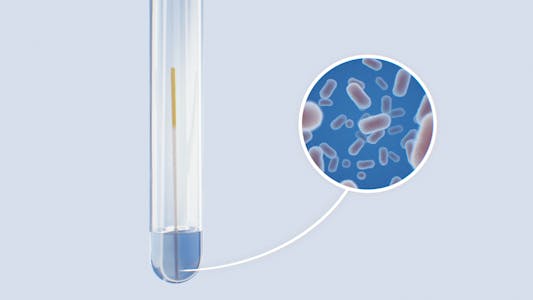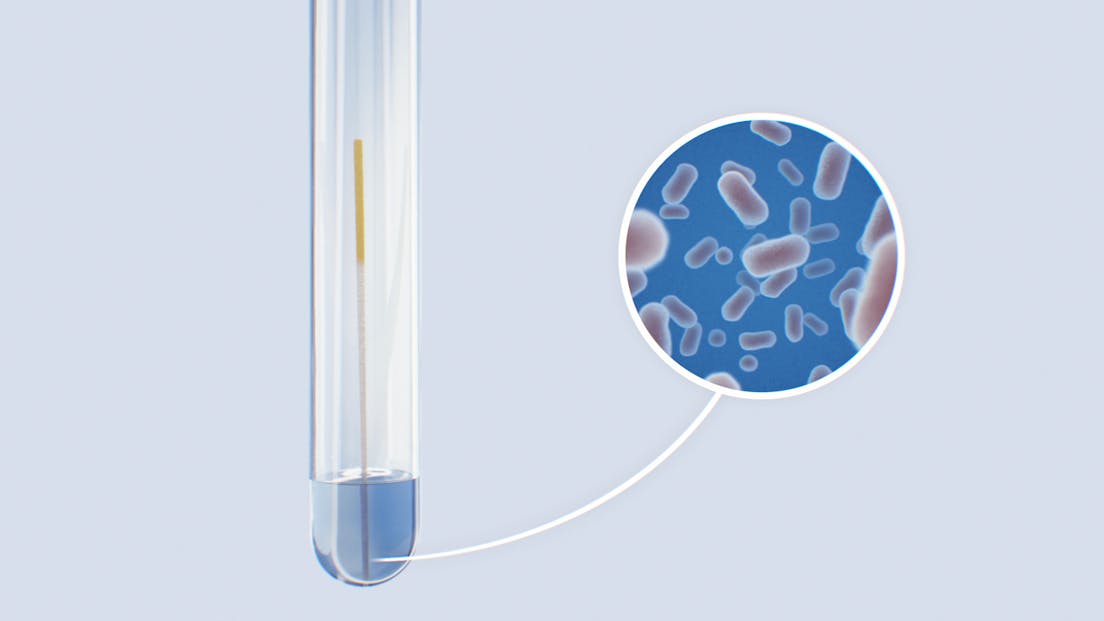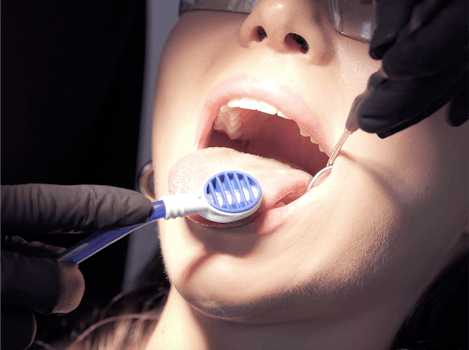Mouth Bacteria: Symptoms & Tips for Optimal Oral Hygiene
A healthy, white smile is not only pleasant to look at, but also an indicator of good oral health. However, behind the scenes of our oral cavity, a complex interplay unfolds, often dominated by bacteria. These tiny organisms can cause a variety of symptoms and problems when they get out of control. In this blog post, we will delve into the symptoms of bacteria in the mouth and how good oral hygiene can help prevent these issues.



Symptoms of Bacteria in the Mouth
Maintaining good oral hygiene is essential for your well-being and overall health. However, sometimes you unwittingly become the target of these tiny yet potentially harmful organisms - the bacteria in your mouth. When they get out of control, they can lead to a variety of unpleasant symptoms and problems. Let's take a closer look:
Gum Problems:
Among the most common consequences of bacteria in the mouth are gum inflammations, known as gingivitis and periodontitis. You might notice swelling, redness, bleeding while brushing your teeth, and even tooth loss. Neglecting your oral hygiene can allow bacteria to settle along the gum lines and cause inflammations.
Plaque and Deposits:
Bacterial plaque on your teeth can lead to cavities and tartar buildup. If you don't regularly remove these deposits, they can lead to tooth decay and even loss. Thorough cleaning, including regular dental hygiene visits, is crucial to avoid these problems.
Bad Breath:
The bacteria in your mouth produce sulfur compounds that can cause unpleasant breath. Good oral hygiene, including regular brushing, flossing, and mouthwash use, can help control the bacterial population, reduce bad breath, and minimize the risk of bad breath due to poor oral hygiene.
Canker Sores and Ulcers:
These painful lesions on the oral mucosa can be caused by bacterial infections or inflammation of the oral mucosa. A balanced diet, good oral hygiene, and stress management can help reduce the risk of canker sores and ulcers and aid in their healing.
Fungal Infections:
A weakened immune system or certain medications can promote the growth of yeast fungi like Candida albicans in the mouth, leading to fungal infections such as oral thrush.
Swallowing Difficulties and Sore Throat:
Inflammation in the mouth and throat can lead to swallowing difficulties and sore throat. Good oral hygiene, avoiding irritants, and, if necessary, medical treatment can help alleviate these symptoms. It is important to pay attention to these symptoms and seek professional help if needed to maintain your oral health and avoid potential complications.
After discussing the symptoms of bacteria in the mouth, let's now take a look at recommendations for optimal oral hygiene.
Recommendations for Optimal Oral Hygiene
Enhance your oral hygiene with these simple tips:
- Regular Brushing: Brush your teeth thoroughly at least twice a day, preferably with one of our ALPINE WHITE toothpastes (Extra White, Sensitivity Relief, Anti Plaque).
- Use Dental Floss: Use dental floss daily to thoroughly clean between your teeth and keep your gums healthy.
- Mouthwash: Antiseptic mouthwashes can help reduce bacteria in the mouth, but they should not be considered a substitute for brushing and flossing.
- Professional Dental Cleaning: Regular visits to our ALPINE WHITE Studio for professional dental cleaning are important to remove stubborn deposits and tartar, and to maintain dental health. Our professional tongue cleaning also removes bacterial deposits on the tongue perfectly. Book your appointment today!
- Balanced Diet: A healthy diet rich in fruits, vegetables, and whole grains can help strengthen the immune system and improve oral health.
By following these simple tips, you can optimize your oral hygiene. But would you like to delve even deeper into holistic oral health?
Bacteria Analysis by ALPINE WHITE
Do you want to become a professional in holistic oral health?
The bacteria analysis at ALPINE WHITE provides important insights into your oral health. Through saliva testing, the current bacterial load in the periodontal pockets is determined, and harmful germs that can cause inflammation are identified. This allows us to detect pathogens early and determine your individual risk for periodontitis.
The analysis includes the examination of 20 different periodontal microorganisms, divided into three groups: Good bacteria contribute to the health of the biofilm, opportunists provide an ideal environment for pathogenic germs, and bad bacteria are highly pathogenic and cause periodontal problems.
On our ALPINE WHITE app, you will receive a comprehensive report with personal data, sample collection sites, and a list of identified bacteria. Based on the results, you will receive tailored tips for your oral hygiene and lifestyle, as well as recommendations for suitable products and treatments. This way, you can improve your oral care and increase your overall well-being in the long term, which can have a positive effect on your immune system and the prevention of dental diseases and problems in the periodontium.
Conclusion: Healthy Oral Flora with ALPINE WHITE
Bacteria in the mouth can cause a variety of symptoms and problems, ranging from gum inflammation to bad breath. Good oral hygiene is crucial to avoid these issues. By regularly brushing your teeth, using dental floss, undergoing professional dental cleaning, and maintaining a balanced diet, you can improve your oral health. In addition, the bacteria analysis by ALPINE WHITE provides personalized recommendations for your oral care, elevating your oral health to a new level. Invest in your oral health and enjoy a white, healthy smile! Book your appointment with ALPINE WHITE today.


